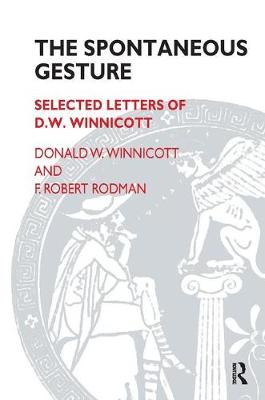
The Spontaneous Gesture
F. Robert Rodman, Donald W. Winnicott
£39.99
Description
This volume consists of the collected letters of D. W. Winnicott, a central figure in British psychoanalysis in the generation following Freud. Suspicious of dogma and deeply committed to the value of his own observations, he maintained a highly personal therapeutic and theoretical style. His common sense, humour, warmth, and individualism made him resemble an old-fashioned family doctor, while at the same time his soaring intellect addressed the most fundamental matters of the mind.Winnicott was a skilled writer with a gift for making his ideas accessible to general readers as well as professionals. He was also a prolific correspondent. This selection of his letters – to colleagues, to the press, and to people who wrote to him about their problems – displays his lively style as well as his characteristic outspokenness and spontaneity.A pediatrician before he became a psychoanalyst, Winnicott was much concerned with the nature of relationships, beginning with that of mother and infant. His terms “good enough mother” and “ordinary devoted mother” express his convictions that parents do not have to meet standards of perfection to raise psychologically healthy children. His most famous concept is that of “transitional object”, the toy or blanket to which a baby becomes deeply attached; he considered such objects important to the development of play, creativity, and cultural life in general.Winnicott’s writings have become more and more influential over the years. His letters, published here, command immediate attention. Together with an insightful introduction by F. Robert Rodman, who sketches Winnicott’s life and traces the development of his ideas, they provide a vivid picture of the thought and personality of a man who has taught us much about our deepest selves.
Publisher Review
D. W. Winnicott was a central figure in British psychoanalysis in the generation following Freud. Suspicious of dogma and deeply committed to the value of his own observations, he maintained a highly personal therapeutic and theoretical style. His common sense, humour, warmth, and individualism made him resemble an old-fashioned family doctor, while at the same time his soaring intellect addressed the most fundamental matters of the mind.Winnicott was a skilled writer with a gift for making his ideas accessible to general readers as well as professionals. He was also a prolific correspondent. This selection of his letters - to colleagues, to the press, and to people who wrote to him about their problems - displays his lively style as well as his characteristic outspokenness and spontaneity.A pediatrician before he became a psychoanalyst, Winnicott was much concerned with the nature of relationships, beginning with that of mother and infant. His terms "good enough mother" and "ordinary devoted mother" express his convictions that parents do not have to meet standards of perfection to raise psychologically healthy children. His most famous concept is that of "transitional object", the toy or blanket to which a baby becomes deeply attached; he considered such objects important to the development of play, creativity, and cultural life in general.Winnicott's writings have become more and more influential over the years. His letters, published here, command immediate attention. Together with an insightful introduction by F. Robert Rodman, who sketches Winnicott's life and traces the development of his ideas, they provide a vivid picture of the thought and personality of a man who has taught us much about our deepest selves.
Book experts at your service
What are you looking for?